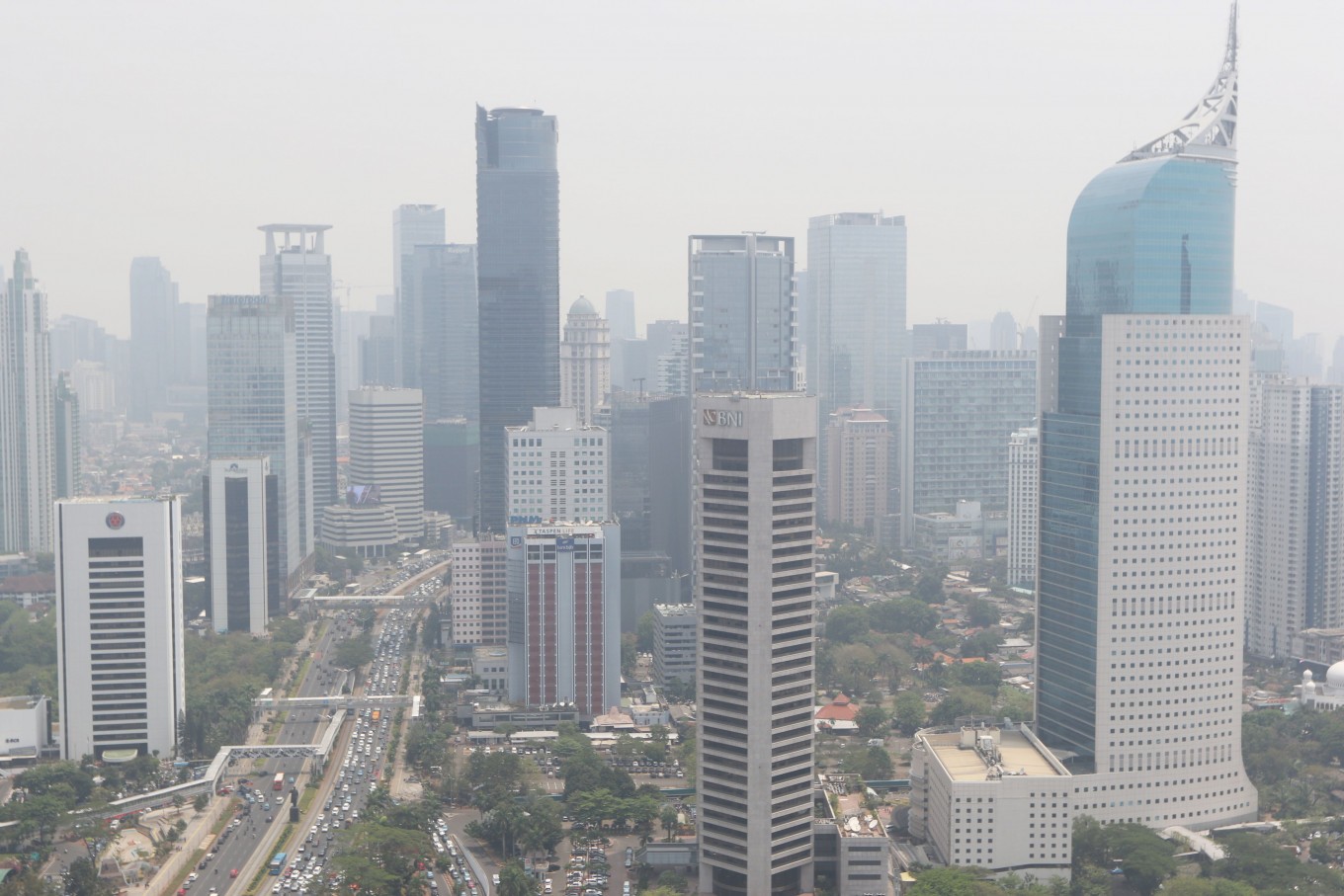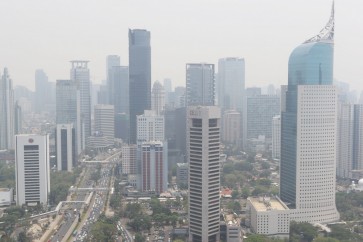Popular Reads
Top Results
Can't find what you're looking for?
View all search resultsPopular Reads
Top Results
Can't find what you're looking for?
View all search resultsIndonesia lags behind in decoupling economic and emissions growth
The government must cook up a recipe to grow the economy through activities that produce the lowest possible emissions in order to make good on its emissions commitment.
Change text size
Gift Premium Articles
to Anyone
I
ndonesia may have seen reduced carbon dioxide (CO2) emissions in 2020 as a result of the government’s COVID-19 mobility restrictions, but past crises suggest emissions tend to bounce back as the economy starts to recover.
The country’s CO2 emissions have fallen an estimated 10 percent to 558.9 million tons in 2020 according to data released in March by the Global Carbon Project (GCP), an international group of climate scientists.
The figure is the steepest decline since at least 2013, when the economy slowed as the government cut fuel subsidies and felt the effects of the United States Federal Reserve’s tight monetary policy.
Last year’s fall in CO2 emissions was a result of the public mobility restrictions that were most stringent when they were first imposed in April. Regional administrations, especially Jakarta, tightened curbs in the local implementation of the large-scale social restrictions (PSBB).
Scientists estimate that global CO2 emissions fell by 2.6 billion tons to 34 billion tons in 2020, down 7 percent from the previous year. Incidentally, the figure is the level at which emissions need to be reduced throughout the current decade to meet the Paris Agreement commitments.
However, past crises suggest that Indonesia’s CO2 emissions will likely return to precrisis levels within a few years as the economy recovers. Indonesia’s CO2 emissions returned to the precrisis level within three years following the 1998 Asian financial crisis, which had triggered a 23 percent reduction in CO2 emissions, the biggest fall on record.
Read also: Indonesia’s carbon tax plan: Will it fix the budget, the climate or neither?


















